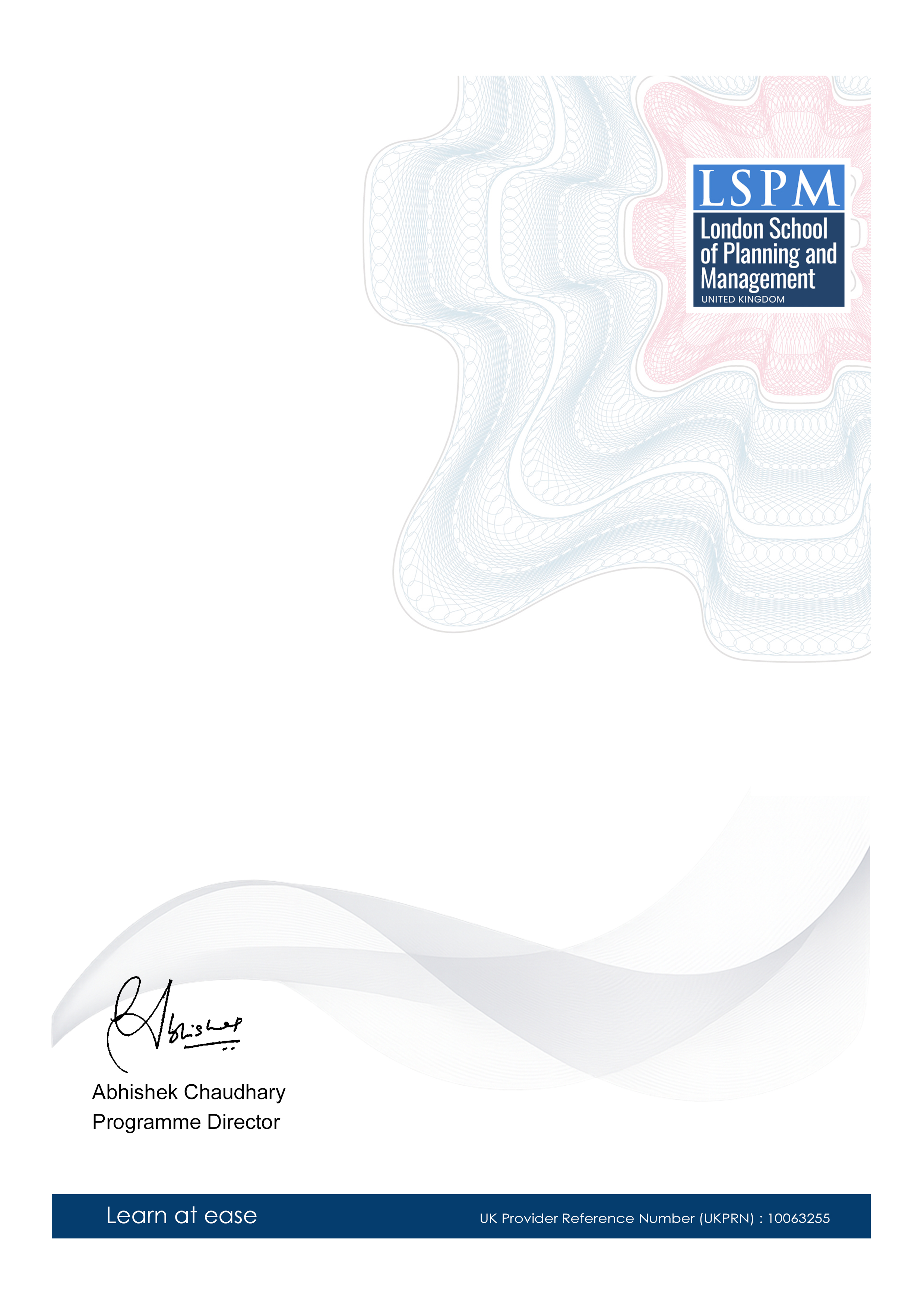Graduate Certificate in Robotics for Humanitarian Crisis Response
-- viewing nowThe Graduate Certificate in Robotics for Humanitarian Crisis Response is designed for professionals seeking to leverage robotics technology in emergency situations. This program equips learners with the skills to develop, operate, and maintain robots for search and rescue, disaster assessment, and aid delivery.
4,620+
Students enrolled
GBP £ 149
GBP £ 215
Save 44% with our special offer
About this course
100% online
Learn from anywhere
Shareable certificate
Add to your LinkedIn profile
2 months to complete
at 2-3 hours a week
Start anytime
No waiting period
Course details
Career path
Graduate Certificate in Robotics for Humanitarian Crisis Response
The Graduate Certificate in Robotics for Humanitarian Crisis Response is a specialized program designed to equip students with the knowledge and skills necessary to use robotics in responding to humanitarian crises. The program focuses on developing expertise in areas such as disaster management, emergency response, and humanitarian aid delivery. Graduates of this program will be well-positioned to work in a variety of roles within the humanitarian sector, including as robotics engineers, technicians, and operators.
Career Roles
- Robotics Engineer: Design, develop, and test robotic systems for use in humanitarian crisis response. Responsible for ensuring that robots are safe, effective, and efficient in their operations.
- Technician: Install, maintain, and repair robotic systems in the field. Work closely with engineers to troubleshoot any issues that may arise during operation.
- Operator: Control and monitor robotic systems during deployment in humanitarian crisis response situations. Responsible for ensuring that robots are used safely and effectively.
Job Market Trends
The job market for robotics professionals in the humanitarian sector is growing rapidly, driven by increasing demand for efficient and effective crisis response strategies. According to a recent report by the United Nations, the use of robotics in humanitarian aid delivery could save up to 30% in costs and increase the speed and accuracy of operations. This trend is expected to continue in the coming years, creating numerous job opportunities for skilled robotics professionals.
Salary Ranges
Salaries for robotics professionals in the humanitarian sector vary depending on factors such as experience, education, and location. However, according to data from PayScale, the average salary for a robotics engineer in the UK is around £50,000 per year, with potential for higher earnings based on specialization and experience. Technicians and operators may earn slightly less, but still command competitive salaries in this growing field.
Skill Demand
The most in-demand skills for robotics professionals in the humanitarian sector include programming languages such as Python and C++, as well as experience with robotic hardware and software platforms like ROS (Robot Operating System) and Gazebo. Additionally, strong problem-solving and critical thinking skills are essential for success in this field, as are the ability to work effectively in high-stress, fast-paced environments.
Entry requirements
- Basic understanding of the subject matter
- Proficiency in English language
- Computer and internet access
- Basic computer skills
- Dedication to complete the course
No prior formal qualifications required. Course designed for accessibility.
Course status
This course provides practical knowledge and skills for professional development. It is:
- Not accredited by a recognized body
- Not regulated by an authorized institution
- Complementary to formal qualifications
You'll receive a certificate of completion upon successfully finishing the course.
Why people choose us for their career
Loading reviews...
Frequently Asked Questions
Course fee
- 3-4 hours per week
- Early certificate delivery
- Open enrollment - start anytime
- 2-3 hours per week
- Regular certificate delivery
- Open enrollment - start anytime
- Full course access
- Digital certificate
- Course materials
Get course information
Earn a career certificate

